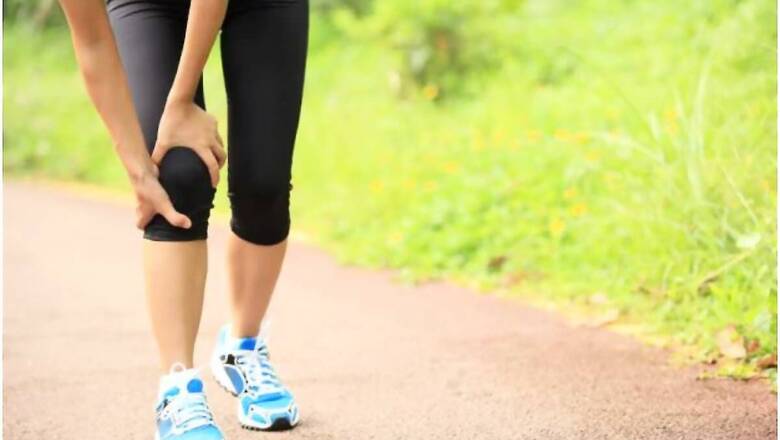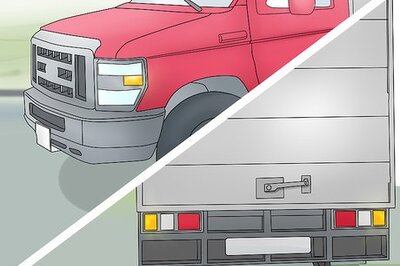
views
Runner’s knee is a term that is used to describe pain around the knee or kneecap (patella). This pain occurs when the knee and the thigh bone (femur) rub against each other, hurting the soft tissue lining of the kneecap. Some conditions that may be characterized as runner’s knee are chondromalacia patella, patellofemoral malalignment, iliotibial band syndrome and knee pain syndrome.
Repeated and vigorous activities performed by knees, structural defects or certain ways of walking commonly cause runner’s knees. Some other contributing factors of runner’s knee are:
- Weak thigh muscles
- Poor foot support
- Flat feet
- Kneecap fracture
- Arthritis
- Malalignment or dislocation of the kneecap
- Tight hamstrings
- Plica syndrome or synovial plica syndrome (lining of the joint gets thickened and inflamed)
- Injury
The typical symptom is, of course, pain around the knee. The pain is usually characterized as dull and aching pain. You may feel it while performing some activities like sitting down, standing up, walking, squatting and climbing up or descending the stairs.
You may also experience grinding, rubbing or a clicking sound of the kneecap during movements of the knee. The knee area may feel warm and tender too.
Treatment for runner’s knee
The management of the runner’s knee is customised depending on a few factors such as age, previous injuries, medical history, health status and others.
However, in most of the cases, the treatment starts with basic RICE intervention.
- Rest is the most effective way to heal a runner?s knee as it helps avoid unnecessary stress to the kneecap.
- Applying an ice pack to the knee area reduces pain. Apply it for 15-20 minutes at a time, 2-3 times a day. Don’t apply ice directly on the skin as this can give you frostbite.
- Compression provides support to the knee joint, keeping it stable during movements. Wrap your knee snugly with an elastic orthopedic band. The wrapping should not be too tight as that can cause swelling.
- Elevation is done by placing the foot and knee above the level of the heart. This prevents and reduces swelling. Place your feet on a pillow while sleeping and keep the leg straight in front of you on a pillow while sitting.
If your pain becomes severe and RICE therapy does not help, then you should consult your doctor.
Pain-relieving medications such as nonsteroidal anti-inflammatory drugs (ibuprofen, naproxen, and aspirin) may be prescribed to reduce pain and inflammation. Other topical pain relievers may also be applied to alleviate the pain. In other conditions like arthritis, your doctor may prescribe you specific medication for the condition. Though very rare, your doctor may recommend surgery in cases of damaged cartilage and malalignment of the knee.
Self-care and prevention
As the pain alleviates, you can practice the following to prevent further pain.
- Practice stretching exercises: Start doing regular stretching exercises to loosen up the muscle of the legs, specifically the thigh and hamstring muscles.
- Maintain a healthy weight: If you are overweight or obese then you should work to lose the extra weight and maintain normal body weight. Extra weight puts more stress on the knees.
- Change your training routine: Never start with a vigorous workout abruptly. Remember to start with stretching and light warmup exercises and gradually start running or weight training.
- Wear the right shoes: Get a good pair of running shoes that fit your feet well. The sole should be soft enough to absorb the shock while walking or running. Use shoe inserts and support devices if you have flat feet.
For more information, read our article on Knee pain.
Health articles on News18 are written by myUpchar.com, India’s first and biggest resource for verified medical information. At myUpchar, researchers and journalists work with doctors to bring you information on all things health.
Read all the Latest News, Breaking News and Coronavirus News here

















Comments
0 comment